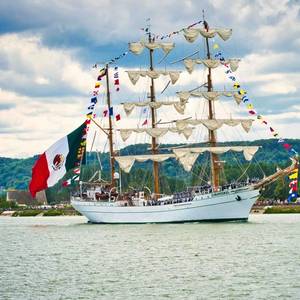
The Mexican ship which crashed into New York's Brooklyn Bridge over the weekend did not make distress calls before ramming into the bridge, the head of Mexico's navy said on Tuesday, but rather called for support.Navy chief Raymundo Morales, speaking at Mexican President Claudia Sheinbaum's morning press conference

The investigation into why a Mexican Navy training ship struck the Brooklyn Bridge on Saturday, shearing the top of its masts, will look into a possible engine failure and the role of a tug boat that assisted it in backing out of its pier, officials said on Monday.The ship's engine was the key focus for the National Transportation Safety Board, said Brian Young
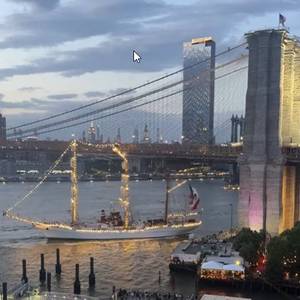
A Mexican Navy sailing ship festooned with lights and a giant flag crashed into the landmark Brooklyn Bridge on Saturday night, shearing the top of its masts, killing two people and injuring several others, New York City Mayor Eric Adams said.Videos online showed the training vessel Cuauhtémoc as it approached the bridge over the East River, close to the Brooklyn side of the span

The US Coast Guard is coordinating with local, state and federal agencies in response to the helicopter crash in the Hudson River that occurred Thursday afternoon in New York City near the Holland Tunnel.The tourist helicopter crashed into New York City's Hudson River, killing all six aboard, including three children, Mayor Eric Adams said.

The Baltic states of Estonia, Latvia and Lithuania completed a switch from Russia's electricity grid to the EU's system on Sunday, severing Soviet-era ties amid heightened security after the suspected sabotage of several subsea cables and pipelines.European Commission President Ursula von der Leyen hailed the move, years in the planning, as marking a new era of freedom for the region

The U.S. seized an empty Russian-flagged, Venezuela-linked oil tanker in the Atlantic Ocean on Wednesday as part of President Donald Trump's aggressive push to dictate oil flows in the Americas and force Venezuela's socialist government to become an ally.After capturing Venezuelan President Nicolas Maduro in an attack on Caracas on Saturday, the U.S.

Crowley announced that Jen Leonard has been appointed chief people officer, effective January 1, 2026, leading its enterprise-wide activities to sustain an elite culture and high performance at the maritime, logistics and energy solutions company.As vice president of Crowley’s Talent and Culture group since 2023
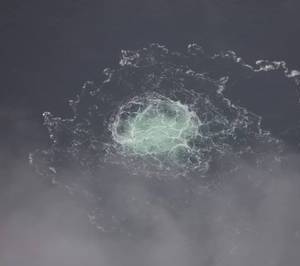
A Ukrainian man was arrested at a holiday bungalow in Italy on suspicion of coordinating attacks on three Nord Stream gas pipelines in 2022, officials said on Thursday, a breakthrough in an episode that sharpened tensions between Russia and the West.Described by both Moscow and the West as an act of sabotage, the explosions largely severed Russian gas supplies to Europe

Longtime mariner and investigator Eric Stolzenberg has been named director of the National Transportation Safety Board’s Office of Marine Safety.The office investigates major marine accidents within the United States and its territories, as well as accidents involving U.S.-flagged vessels worldwide.Stolzenberg began his career at the NTSB in 2008 as an engineering investigator.
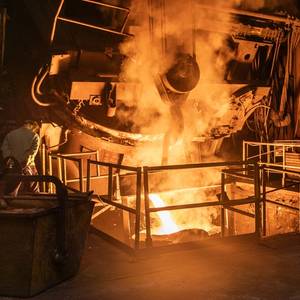
For nearly 200 years, metal casting foundries have served as the backbone of American manufacturing. Though only 1,750 foundries remain today, compared to more than 6,000 in 1955, they are responsible for more than $110 billion in economic output and support nearly half a million jobs.
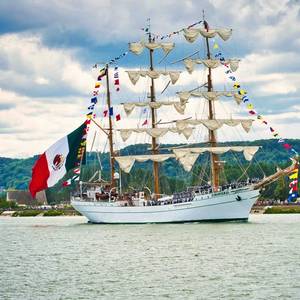
The U.S. National Transportation Safety Board (NTSB) released its preliminary report on the May 17, 2025 collision between the Mexican Navy training vessel ARM Cuauhtémoc and the Brooklyn Bridge, stressing that the findings are not final and remain subject to change as the investigation continues.
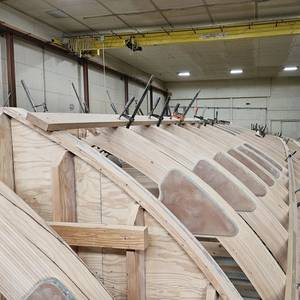
Even though there is still a substantial amount of wooden yacht construction and restoration out there, wooden hull construction has pretty much gone the way of the mastodonts.To find a new commercial wooden vessel project would be quite a challenge. Except if you happen to know Scarano Boatworks. Scarano Boats was founded by brothers John and Rick Scarano in 1986.